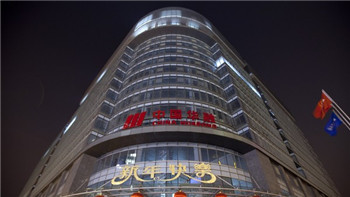
One of China’s leading “bad banks” is expected to offer its $2.5bn Hong Kong float this week with a record amount locked up by so-called cornerstone backers, suggesting shaky investor sentiment that bodes ill for future new listings in the city.
中国主要“坏账银行”之一“中国华融资产管理公司”(China Huarong Asset Management)本周将在香港启动首次公开发行(IPO),计划融资25亿美元,预计“基石投资者”认购的股份比例将创纪录。这表明香港市场上投资者情绪仍然低落,预示着未来的IPO前景不佳。
China Huarong Asset Managementis likely to allot more than 70 per cent of its listing to cornerstones, according to a person with knowledge of the deal. Cornerstone investors get the full allocation they request in return for accepting a lock-up period, typically six months.
一名知情人士表示,华融资产可能会把超过70%的拟发售股份分配给基石投资者。基石投资者会获得他们要求的全部股份,条件是接受通常为6个月的锁定期。
While the practice was initially used to lure prospective investors by attaching marquee names to a deal, more recently cornerstones have helped lower the risk of an unfilled order book.
这种做法一开始是为了拉拢名声显赫的机构认购,从而吸引潜在投资者,但近来,基石投资者也帮助降低了新股发行中认购不足的风险。
Cornerstones have taken up 38 per cent of the equity on offer in Hong Kong this year, according to Dealogic — a record as the practice has gathered pace since the city’s 2010 capital-raising boom faded.
根据Dealogic数据,基石投资者在今年香港新股发行中的认购比例达到了创纪录的38%。自香港于2010年兴起的融资热潮消退以来,这一做法就变得流行起来。
The record for any single initial public offering of more than $500m is held by China Railway Signal, which listed in August with 67 per cent of its shares deal locked up, according to Dealogic.
Dealogic数据显示,在融资额高于5亿美元的IPO中,分配给基石投资者的股份比例最高的是中国通号(China Railway Signal),该公司8月IPO时股份锁定比例达67%。
Huarongwill announce its cornerstones when it begins taking orders on Thursday. Another person with knowledge of the deal said the proportion locked up with big investors would definitely be “well north of 50 [per cent].”
华融资产在周四开始接受认购时,将公布基石投资者认购情况。另一名知情人士表示,被锁定给大型投资者的股份比例肯定将“远远高于50%”。
The company declined to comment.
华融资产拒绝置评。
The deal is one of three big IPOs in Hong Kong being watched for signs of investor mood following China’s summer stock market rout.
这是当下香港市场备受关注的三大IPO之一,人们希望从这些IPO中了解今夏中国股市下跌之后的投资者情绪。
Brokers report still-sluggish demand for shares, with investors shunning new bets on the market in favour of tweaking their positions and waiting for a clearer mood to take hold.
券商表示购股需求仍然低迷,投资者不愿做出新的押注,而是调整头寸、等待市场情绪变得更加明朗。
China Re, the mainland reinsurer, will begin taking orders for its $2bn IPO on Monday, when it will also announce its cornerstones. They are expected to take more than half of that deal too, according to people familiar with the matter.
中国内地保险商中国再保险(China Re)计划本周一开始接受投资者认购,拟融资20亿美元,并将在同日宣布基石投资者认购情况。知情人士表示,中再保基石投资者的认购比例预计也将超过50%。
CICC, the investment bank in which the private equity groups KKR and TPG have stakes, is expected to seek $1bn in the coming weeks, too.
私人股本集团KKR和TPG持有股份的投行中金公司(CICC),预计也将在未来几周里IPO,寻求融资10亿美元。
Huarong’s offering has been made more difficult by its need to justify pricing at a premium to its peer, Cinda Asset Management. Mainland rules bar financial companies from pricing at a discount to their book value and Cinda currently trades at about 0.9 times book, leaving Huarong’s bankers to make the case for a 10 per cent premium.
华融招股中有一个难处,它需要证明定价高于同行信达资产(Cinda Asset Management)是有道理的。中国内地相关规则禁止金融企业定价低于账面价值,信达资产目前股价约为账面价值的90%,而华融的银行家需要为高出账面价值10%的溢价找出理由。
Cinda and Huarong are two of the four asset managers set up in the 1990s to take on the bad loans of China’s biggest banks.
信达和华融是上世纪90年代成立、旨在吸收中国大型银行坏账的四大资产管理公司中的两家。
In August last year Huarong sold a 21 per cent stake to a group of investors including Warburg Pincus and Goldman Sachs for $2.4bn. The funds it is seeking via its Hong Kong IPO imply a valuation one-third above that deal price.
去年8月,华融以24亿美元的价格向多家投资者出售了21%的股权,其中包括美国华平投资集团(Warburg Pincus)和高盛(Goldman Sachs)。华融寻求通过香港IPO融资25亿美元,其估值较上次出售股份时高出三分之一。
Shares in Cinda, meanwhile, have slipped about a third since August last year, weakened recently by its plans to buy Nanyang Bank from Bank of China for $8.8bn.
另一方面,自去年8月以来,信达股价已下跌约三分之一。最近因计划以88亿美元向中国银行(BoC)收购南洋商业银行(NCB),信达股价走势疲软。
Huarong’s cornerstone list will also be scrutinised for its composition as well as the size of the stakes. Chinese state-owned enterprises in particular have become known for tapping so-called “friends and family” — such as fellow SoEs — as cornerstones rather than building a list of blue-chip investors.
至于华融的基石投资者名单,其构成和认购比例也将受到密切关注。中国国企特别出名的一点是,往往以其他国企等所谓“亲友团”而不是蓝筹机构为基石投资者。
Cinda’s investors included Och-Ziff Capital, Norges Bank Investment Management Bank, Ping An’s asset management arm and Oaktree Capital.
信达的投资者包括Och-Ziff Capital、挪威央行投资管理机构(NBIM)、中国平安保险(Ping An)旗下的资产管理公司,以及橡树资本(Oaktree Capital)。











